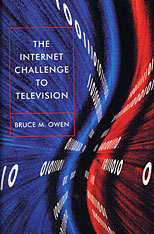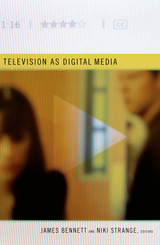
After a half-century of glacial creep, television technology has begun to change at the same dizzying pace as computer software. What this will mean--for television, for computers, and for the popular culture where these video media reign supreme--is the subject of this timely book. A noted communications economist, Bruce Owen supplies the essential background: a grasp of the economic history of the television industry and of the effects of technology and government regulation on its organization. He also explores recent developments associated with the growth of the Internet. With this history as a basis, his book allows readers to peer into the future--at the likely effects of television and the Internet on each other, for instance, and at the possibility of a convergence of the TV set, computer, and telephone.
The digital world that Owen shows us is one in which communication titans jockey to survive what Joseph Schumpeter called the "gales of creative destruction." While the rest of us simply struggle to follow the new moves, believing that technology will settle the outcome, Owen warns us that this is a game in which Washington regulators and media hyperbole figure as broadly as innovation and investment. His book explains the game as one involving interactions among all the players, including consumers and advertisers, each with a particular goal. And he discusses the economic principles that govern this game and that can serve as powerful predictive tools.


Introducing the collection, James Bennett explains how television as digital media is a non-site-specific, hybrid cultural and technological form that spreads across platforms such as mobile phones, games consoles, iPods, and online video services, including YouTube, Hulu and the BBC’s iPlayer. Television as digital media threatens to upset assumptions about television as a mass medium that has helped define the social collective experience, the organization of everyday life, and forms of sociality. As often as we are promised the convenience of the television experience “anytime, anywhere,” we are invited to participate in communities, share television moments, and watch events live. The essays in this collection demonstrate the historical, production, aesthetic, and audience changes and continuities that underpin the emerging meaning of television as digital media.
Contributors. James Bennett, William Boddy, Jean Burgess, John Caldwell, Daniel Chamberlain, Max Dawson, Jason Jacobs, Karen Lury, Roberta Pearson, Jeanette Steemers, Niki Strange, Julian Thomas, Graeme Turner
READERS
Browse our collection.
PUBLISHERS
See BiblioVault's publisher services.
STUDENT SERVICES
Files for college accessibility offices.
UChicago Accessibility Resources
home | accessibility | search | about | contact us
BiblioVault ® 2001 - 2024
The University of Chicago Press









